Cars in Europe to Necessarily Have Electronic Stability Control

While India is still waiting for even airbags to be made mandatory, Europe has gone a step further to make its cars much safer to drive by making electronic stability control (ESC) a standard fitment in all new cars. In Europe it is estimated that since 1995 at least 1,88,500 crashes involving injury have been avoided and more than 6,100 lives saved by ESC, says Global NCAP.
Country and regions that have made the application of ESC mandatory are Australia, Canada, the European Union, Israel, Japan, the Republic of Korea, the Russian Federation, Turkey and the United States of America. In fact, government of Argentina and New Zealand too have committed to mandate this life-saving technology in 2018 and 2015 respectively.
Also Read: Maruti Swift and Datsun Go Fail NCAP Crash Test
In a bid to extended this life-saving technology worldwide, Global NCAP is urging all UN Member States to make ESC a standard fitment on all cars worldwide during the current UN Decade of Action.
Max Mosley, Chairman of Global NCAP, said: "The current ESC global fitment rate of approximately 59% of new passenger and light duty vehicles is too low, action is needed to raise this to 100%, at the latest by the close of the UN Decade of Action for Road Safety in 2020."
Global NCAP's secretary general David Ward said: "ESC is the most significant advance in vehicle safety since the introduction of the seatbelt. The anti-skid technology is already preventing hundreds of thousands of loss of control crashes and saving tens of thousands of lives, but will achieve even more if legislators around the world make ESC compulsory."
At Global NCAP's Annual Meeting, which took place in Tianjin, China on October 30, held in parallel with the 2014 UN Decade of Action for Road Safety Summit, Global NCAP adopted the Tianjin Declaration. While applauding all the countries that have made ESC mandatory, the declaration asks all UN Member States, especially the ones producing automobiles, to mandate ESC in new models by 2018 and in all all models by 2020.
"ESC is a mature technology proven to save lives," said Ward. "It is simple and inexpensive for automakers to integrate ESC into their cars. That's why the Global Plan for the Decade of Action for Road Safety strongly recommends fitment of ESC. Wherever in the world consumers, fleet managers and car rental operators buy cars, they should only choose vehicles equipped with ESC."
How does ESC work?
Also known as Electronic Stability Program (ESP) or Dynamic Stability Control (DSC), ESC uses sensors to monitor the vehicle's stability. And if a vehicle starts skidding on dry, wet or slippery roads, the system intervenes and reduces engine torque while braking individual wheels. This generates the force needed to put a vehicle back on course.
Several studies confirm that the effectiveness of ESC in reducing single passenger vehicle crashes that result in fatalities by 40%.
Latest News
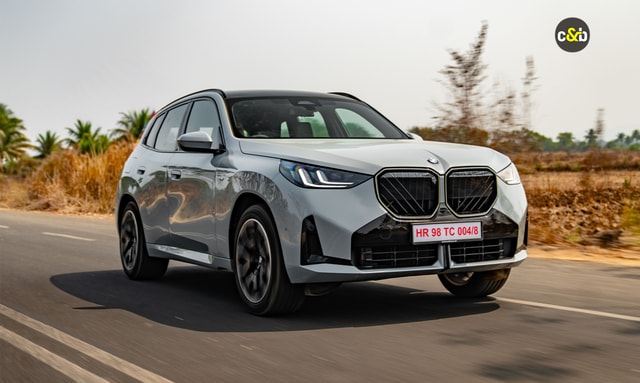 Bilal Firfiray | Feb 16, 2026BMW X3 xDrive30 M Sport Pro Lanched In India At Rs 74.50 LakhThe new range-topping xDrive 30 done up in the M Sport Pro trim offers 255bhp and 400Nm. Can do 0-100kmph in just 6.3 seconds1 min read
Bilal Firfiray | Feb 16, 2026BMW X3 xDrive30 M Sport Pro Lanched In India At Rs 74.50 LakhThe new range-topping xDrive 30 done up in the M Sport Pro trim offers 255bhp and 400Nm. Can do 0-100kmph in just 6.3 seconds1 min read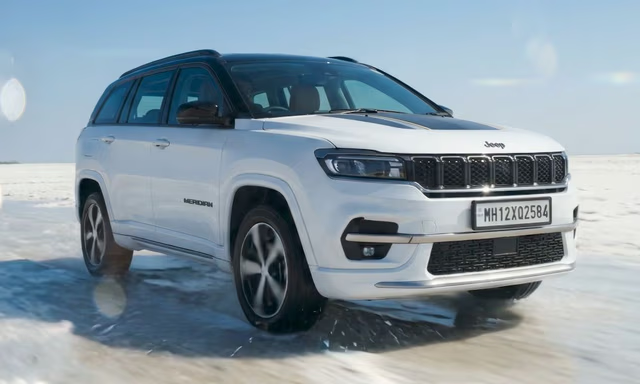 Jaiveer Mehra | Feb 16, 2026Jeep Meridian Track Edition Launched In India; Prices Start At Rs 35.95 LakhSpecial edition of the Meridian is based on the fully-loaded Meridian Overland.1 min read
Jaiveer Mehra | Feb 16, 2026Jeep Meridian Track Edition Launched In India; Prices Start At Rs 35.95 LakhSpecial edition of the Meridian is based on the fully-loaded Meridian Overland.1 min read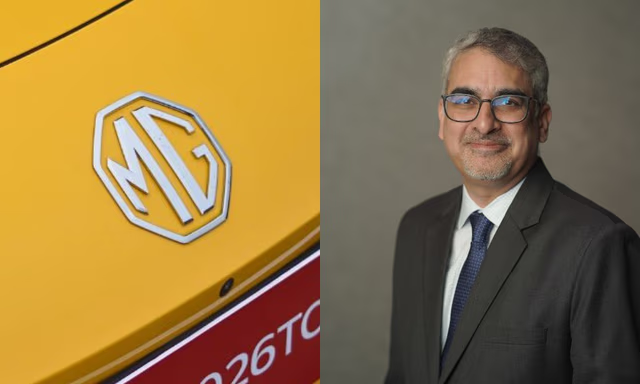 Girish Karkera | Feb 16, 2026MG's First Plug-In Hybrid For India Coming In 2026, Confirms MD Anurag MehrotraJSW MG is pivoting toward a hybrid and electric future, targeting a 30% market share for New Energy Vehicles (NEVs) by the end of the decade1 min read
Girish Karkera | Feb 16, 2026MG's First Plug-In Hybrid For India Coming In 2026, Confirms MD Anurag MehrotraJSW MG is pivoting toward a hybrid and electric future, targeting a 30% market share for New Energy Vehicles (NEVs) by the end of the decade1 min read car&bike Team | Feb 15, 2026Maruti Suzuki Brezza Facelift Spied With 6-Speed Manual GearboxLatest images of the test car’s interior suggest that it could become the first Maruti to get a 6-speed manual gearbox.1 min read
car&bike Team | Feb 15, 2026Maruti Suzuki Brezza Facelift Spied With 6-Speed Manual GearboxLatest images of the test car’s interior suggest that it could become the first Maruti to get a 6-speed manual gearbox.1 min read Jaiveer Mehra | Feb 15, 2026SIAM Reports PV Sales Of Almost 4.5 Lakh Units, 2W Sales Of Over 19 Lakh Units In January 2026SIAM reported that sales of passenger vehicles and two-wheelers were the best ever for the month of January.1 min read
Jaiveer Mehra | Feb 15, 2026SIAM Reports PV Sales Of Almost 4.5 Lakh Units, 2W Sales Of Over 19 Lakh Units In January 2026SIAM reported that sales of passenger vehicles and two-wheelers were the best ever for the month of January.1 min read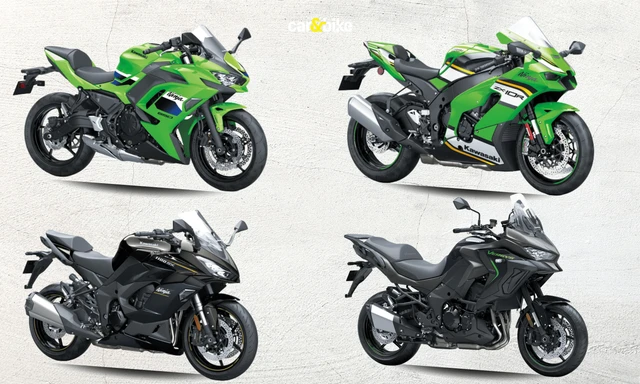 car&bike Team | Feb 14, 2026Kawasaki Ninja, Versys Models Available With Discounts Of Up To Rs 2.50 LakhThe highest discount is being offered on the Ninja ZX-10R, followed by the Ninja 1100 SX and ZX-6R models.2 mins read
car&bike Team | Feb 14, 2026Kawasaki Ninja, Versys Models Available With Discounts Of Up To Rs 2.50 LakhThe highest discount is being offered on the Ninja ZX-10R, followed by the Ninja 1100 SX and ZX-6R models.2 mins read
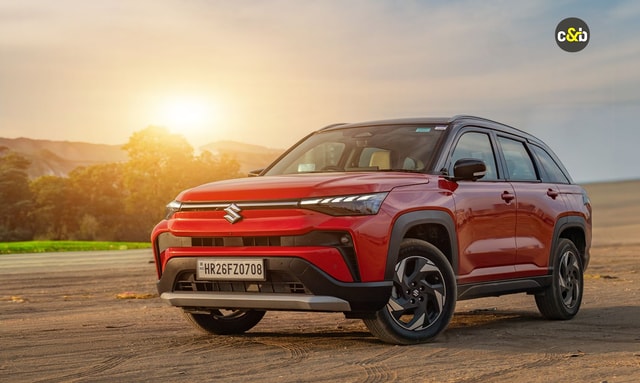 Jafar Rizvi | Feb 15, 2026Maruti Suzuki Victoris: Long-Term Review - Report 1The Victoris is Maruti’s latest offering for the Indian market, and after spending some time with it, here are a few early impressions.1 min read
Jafar Rizvi | Feb 15, 2026Maruti Suzuki Victoris: Long-Term Review - Report 1The Victoris is Maruti’s latest offering for the Indian market, and after spending some time with it, here are a few early impressions.1 min read Bilal Firfiray | Feb 12, 2026BMW X3 30 xDrive M Sport Review: The Driver’s SUV ReturnsRange-toppingX3 30 xDrive M Sport brings back the fun with 255bhp and genuine enthusiast appeal. Does this performance-focused SUV stand out?5 mins read
Bilal Firfiray | Feb 12, 2026BMW X3 30 xDrive M Sport Review: The Driver’s SUV ReturnsRange-toppingX3 30 xDrive M Sport brings back the fun with 255bhp and genuine enthusiast appeal. Does this performance-focused SUV stand out?5 mins read Bilal Firfiray | Feb 11, 2026Mercedes-AMG CLE 53 Coupe Review: The Goldilocks AMG?The Mercedes-AMG CLE 53 Coupe is a concoction of hooliganistic performance and everyday usability. Here’s why this Rs 1.5 crore two-door AMG might be the perfect modern sports coupe for India.6 mins read
Bilal Firfiray | Feb 11, 2026Mercedes-AMG CLE 53 Coupe Review: The Goldilocks AMG?The Mercedes-AMG CLE 53 Coupe is a concoction of hooliganistic performance and everyday usability. Here’s why this Rs 1.5 crore two-door AMG might be the perfect modern sports coupe for India.6 mins read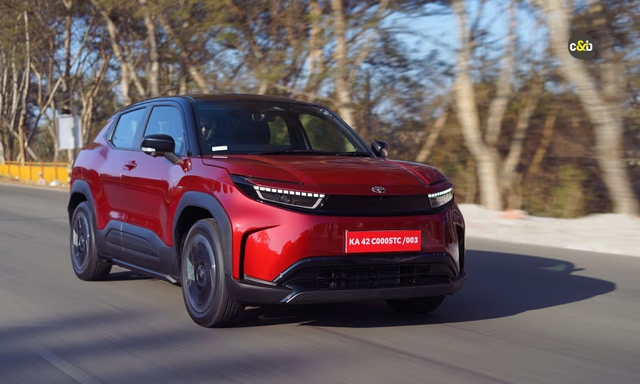 Girish Karkera | Feb 11, 2026Toyota Ebella EV Review: Compact And Fun-To-Drive With The Promise Of Stress-Free AftersalesNo hiding the fact that it is a clone of the Maruti Suzuki eVitara, but the first all-electric Toyota in India is reasonably well-rounded8 mins read
Girish Karkera | Feb 11, 2026Toyota Ebella EV Review: Compact And Fun-To-Drive With The Promise Of Stress-Free AftersalesNo hiding the fact that it is a clone of the Maruti Suzuki eVitara, but the first all-electric Toyota in India is reasonably well-rounded8 mins read Bilal Firfiray | Feb 10, 2026Tata Punch EV Long Term Review: Small EV With A Big-Hearted PersonalityWith the new Punch EV Facelift just around the corner, we decided to take a look at what it excels at and what could be improved.7 mins read
Bilal Firfiray | Feb 10, 2026Tata Punch EV Long Term Review: Small EV With A Big-Hearted PersonalityWith the new Punch EV Facelift just around the corner, we decided to take a look at what it excels at and what could be improved.7 mins read




























































































































